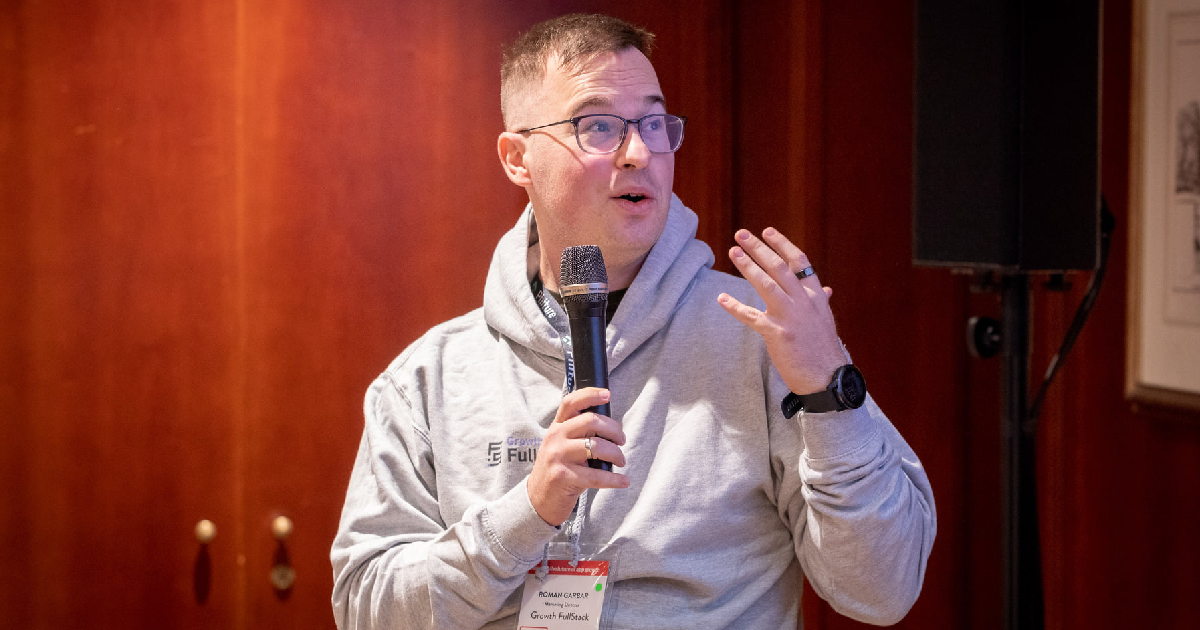Results of 2021: Roman Garbar from Tenjin on the main thing for the year
We continue to summarize the results of 2021 together with top managers and experts of the gaming industry (and related ones). Next up is an interview with Roman Garbar, Tenjin's marketing director.
How was 2021 for the company?
It was definitely not boring in 2021. Our main focus was to minimize the effect of changes related to iOS 14 on small development teams.
If in 2020 some developers looked at us as urban lunatics who predict the imminent death of all living things, then in 2021 more and more developers themselves get in touch to find out how to analyze limited advertising data on iOS. I think this is a good trend, especially considering that in 2022 we are all still waiting for similar changes on Android.
Most of all, I am proud that together with GameAnalytics we have launched a new product called Growth FullStack. Previously, in order to break into the top 10 apps, you had to have an amazing game or an amazing marketing team (with a good budget). And now the first and second cannot do without another element — the ability to analyze data from constantly changing privacy and confidentiality rules. If large companies are coping with a new challenge through the purchase of new studios and the hiring of specialists in the data science and analytics team, then indie developers do not have such an opportunity. We created the Growth FullStack for them.
What event or trend do you consider to be central to your niche in 2021?
2021 will go down in history as the year in which iOS 14 was released — the very armageddon for marketers on mobile.
In the meantime, we see that for the first time in history, advertisers began to spend more on Android campaigns than on iOS. Even two years ago, this was unthinkable.
The attribution market is also waiting for significant changes. Previously, attribution companies charged for additional logic that determines the source of the installation, but now Apple does it directly (and Google will do it soon).
Even Facebook, which has always worked exclusively with only a limited set of companies — MMP (Mobile Measurement Partner) — now attributes most iOS users through SKAdNetwork (Apple's attribution framework). The company recently opened support for Google Play Referrer for Android. Developers can use both methods directly without MMP.
The release of iOS 15 was probably the best news for advertisers in the fourth quarter of 2021. Now they can receive the full amount of SKAdNetwork data directly from Apple, rather than from the advertising network. Few people use it now, but, for example, you can view the ID of applications in which the purchased user clicked on an advertisement. Traditionally, real identifiers were kept secret by advertising networks. Thus, we can say that this is one of the few gifts to marketers in 2021.
What will be the stake in the development of the company in 2022?
I would divide the plans for 2022 into three categories:
- We want more game developers to become their publishers as well. We have many such success stories. This year, the loudest is Ruby Games studio, which was bought by Rovio. So we plan to create more of these stories through product updates, training materials, and partnerships.
- In 2022, we also plan to launch the full Attribution Modeling functionality, which will calculate the approximate ROI and LTV even for SKAdNetwork campaigns and give a percentage estimate of how accurate the forecast is based on these values.
- For Growth FullStack, we plan to launch a separate dashboard where users themselves will be able to work with data in an intuitive way. We also add new partners and new user cases to the site on a weekly basis, some of which are free.
